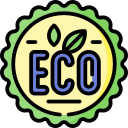
The Future of Ethical Fashion: Trends and Innovations
The conversation around ethical fashion has gathered considerable momentum in recent years. Consumers, brands, and industry leaders are demanding higher standards for sustainability, transparency, and social responsibility in every aspect of the fashion supply chain. As technology advances and consumer consciousness rises, the industry stands at the precipice of transformative change. This page explores the major trends and breakthrough innovations shaping the future of ethical fashion, examining how brands can embrace a new paradigm that values people, planet, and progress in equal measure.
Sustainable Materials and Circular Design
Next-Generation Fabrics
The push toward sustainability has fueled the development of next-generation fabrics derived from renewable sources and waste products. Material innovators are experimenting with plant-based fibers, such as hemp, bamboo, and cork, as well as bioengineered textiles like lab-grown leather or mycelium. These fabrics offer comparable aesthetics and functionality to traditional materials, but with far less environmental impact. By integrating biodegradable and recyclable elements, designers empower consumers to enjoy luxurious apparel while aligning with eco-friendly values. The widespread adoption of such materials will be pivotal for a fashion industry striving to reduce its reliance on finite resources and synthetic plastics.
Closed-Loop Production Models
Closed-loop production models represent a significant leap forward in sustainable fashion processes. These systems are built on the foundation of keeping materials in use for as long as possible, through recycling, repurposing, and innovative repair programs. Brands are investing in technologies that enable them to recycle old garments into fibers for new products, drastically reducing textile waste. This approach anticipates regulatory changes, responds to environmental challenges, and resonates with a new generation demanding that fashion be both beautiful and responsible. The move toward circularity promises not just to reduce environmental harm, but also to reshape the very structure of value creation in fashion.
Modular and Timeless Design Philosophy
Ethical fashion’s embrace of modular and timeless design philosophy means apparel is made to last—including through changes in style and use. Designers now focus on creating classic silhouettes and neutral palettes that transcend seasonal trends, encouraging longevity in consumer wardrobes. Additionally, modularity—such as detachable components or adaptable fits—offers greater utility and personalization, decreasing the impulse for fast, disposable purchases. This shift helps foster a culture of deliberate consumption, where each garment is valued, cared for, and ultimately passed on rather than discarded.

Digital tracking technologies, such as blockchain and advanced QR codes, are revolutionizing how fashion companies document their products’ journeys. These tools provide indisputable records of sourcing, production, and handling, enabling consumers and partners to trace garments back to their origins with unprecedented precision. The adoption of such transparent systems supports ethical claims and deters greenwashing, giving buyers the power to make informed choices. As supply chains grow ever more complex and globalized, digital traceability will be vital for building and maintaining trust between brands and customers.

Shifting away from vague environmental messaging, ethical brands are adopting full disclosure marketing, sharing detailed reports about materials, labor practices, and environmental impacts. By making manufacturing processes visible—from farm to factory to shelf—brands equip consumers to hold them accountable and support truly responsible businesses. This not only elevates ethical companies but also pushes competitors to raise their standards and expand their openness. The move towards radical transparency, reinforced by verified claims and meaningful dialogue, is reshaping how fashion narratives are constructed and consumed.

To establish and validate their ethical credentials, forward-thinking brands are increasingly partnering with reputable third-party certifiers. These organizations independently assess compliance with labor, environmental, and social standards, offering certifications that act as trusted marks for consumers. By working with entities such as Fair Trade, the Global Organic Textile Standard (GOTS), and the Better Cotton Initiative, companies can communicate their dedication to integrity and safe working conditions. These partnerships lend credibility in a crowded marketplace, and as consumer skepticism rises, third-party validation will become an essential pillar of ethical fashion’s future.

